Case study
Rachel Kerrigan
Veteran and former Invictus Games competitor
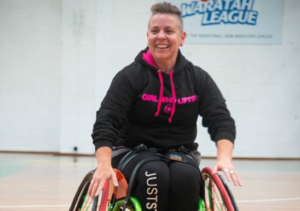
overview
Former RAAF engineering officer, Rachel joined the Royal Australian Air Force in 1997. After serving in Afghanistan and then returning to civilian life, Rachel had a major journey navigating the complexities of life after being in the military.
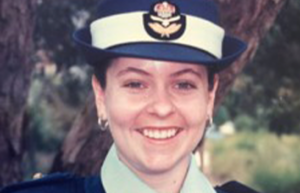
challenge
In 2010, three years after she left the RAAF, her mental health deteriorated rapidly. At her lowest point in 2012, Rachel attempted suicide, she was diagnosed with severe post traumatic stress and depressive disorder, was put on 30 pills to manage her moods, anger and anxiety, was having two psychiatrist visits a week and she became physically unhealthy weighing in at 119 kilos. Rachel was also diagnosed with uterine cancer and had to fight the disease alongside managing her mental health and learning how to re-use the left side of her body after having a stress induced stroke.
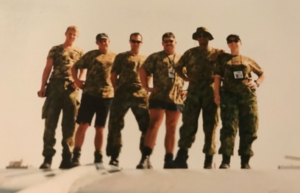
Journey
Sport helped to turn her life around, she lost 60 kilos and began reducing her medication with support. She learned that her greatest tool for recovery was her body. She began training for the 2016 Invictus Games, which for her, really proved what she was capable of.
Rachel is now fit and healthy, and she attributes sport to getting her there. Sport has given her the tools to manage the anxiety and depression and it has strengthened and built her coordination after the stroke. She competes in powerlifting and national wheelchair basketball.
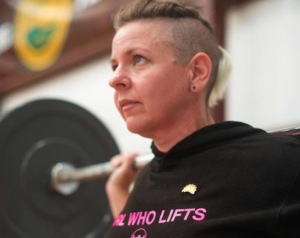
Impact
Rachel has helped guide other veterans and families toward health in Nth NSW, previously working as a Veteran Engagement Specialist for Invictus Australia and studying to become an exercise physiologist. She also volunteers as a power-lifting coach for other veterans.
Sport has played a major role in helping her to manage her mental and physical health. While PTSD never goes away and Rachel still has to manage it on a daily basis, it doesn’t define who she is. She has decided to focus on what is important in life. Rachel enjoys helping other veterans on their journeys to health and well-being and credits daughter for giving her strength throughout her recovery.
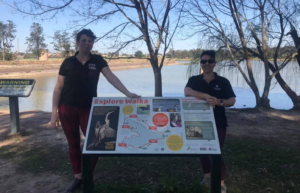
“𝙋𝙏𝙎𝘿 𝙧𝙞𝙥𝙥𝙚𝙙 𝙢𝙚 𝙤𝙛 𝙢𝙮 𝙞𝙙𝙚𝙣𝙩𝙞𝙩𝙮. 𝙄 𝙝𝙖𝙙 𝙜𝙤𝙣𝙚 𝙛𝙧𝙤𝙢 𝙖 𝙛𝙪𝙡𝙡𝙮 𝙛𝙪𝙣𝙘𝙩𝙞𝙤𝙣𝙞𝙣𝙜 𝙖𝙙𝙪𝙡𝙩 𝙩𝙤 𝙨𝙤𝙢𝙚𝙤𝙣𝙚 𝙄 𝙙𝙞𝙙𝙣’𝙩 𝙧𝙚𝙘𝙤𝙜𝙣𝙞𝙨𝙚 𝙖𝙣𝙮𝙢𝙤𝙧𝙚. 𝙎𝙥𝙤𝙧𝙩 𝙜𝙖𝙫𝙚 𝙢𝙚 𝙩𝙝𝙚 𝙩𝙤𝙤𝙡𝙨 𝙩𝙤 𝙢𝙖𝙣𝙖𝙜𝙚 𝙩𝙝𝙚 𝙖𝙣𝙭𝙞𝙚𝙩𝙮, 𝙙𝙚𝙥𝙧𝙚𝙨𝙨𝙞𝙤𝙣 𝙖𝙣𝙙 𝙢𝙮 𝙝𝙚𝙖𝙙𝙨𝙥𝙖𝙘𝙚 – 𝙞𝙩 𝙜𝙖𝙫𝙚 𝙢𝙚 𝙨𝙥𝙖𝙘𝙚 𝙩𝙤 𝙗𝙧𝙚𝙖𝙩𝙝𝙚. 𝙎𝙥𝙤𝙧𝙩 𝙜𝙖𝙫𝙚 𝙢𝙚 𝙗𝙖𝙘𝙠 𝙖 𝙛𝙖𝙢𝙞𝙡𝙮, 𝙥𝙧𝙤𝙫𝙞𝙙𝙚𝙙 𝙢𝙚 𝙬𝙞𝙩𝙝 𝙢𝙖𝙩𝙚𝙨𝙝𝙞𝙥 𝙖𝙣𝙙 𝙜𝙖𝙫𝙚 𝙢𝙚 𝙖 𝙥𝙪𝙧𝙥𝙤𝙨𝙚 𝙖𝙜𝙖𝙞𝙣. 𝙏𝙝𝙞𝙨 𝙞𝙨 𝙬𝙝𝙮 𝙄 𝙡𝙤𝙫𝙚 𝙢𝙮 𝙟𝙤𝙗 𝙬𝙞𝙩𝙝 𝙑𝙎𝘼 – 𝙄 𝙜𝙚𝙩 𝙩𝙤 𝙨𝙝𝙖𝙧𝙚 𝙩𝙝𝙞𝙨 𝙬𝙞𝙩𝙝 𝙤𝙩𝙝𝙚𝙧 𝙫𝙚𝙩𝙚𝙧𝙖𝙣𝙨 𝙖𝙣𝙙 𝙬𝙞𝙩𝙣𝙚𝙨𝙨 𝙟𝙪𝙨𝙩 𝙝𝙤𝙬 𝙥𝙤𝙬𝙚𝙧𝙛𝙪𝙡 𝙨𝙥𝙤𝙧𝙩 𝙘𝙖𝙣 𝙗𝙚 𝙞𝙣 𝙨𝙤𝙢𝙚𝙤𝙣𝙚’𝙨 𝙡𝙞𝙛𝙚!”





